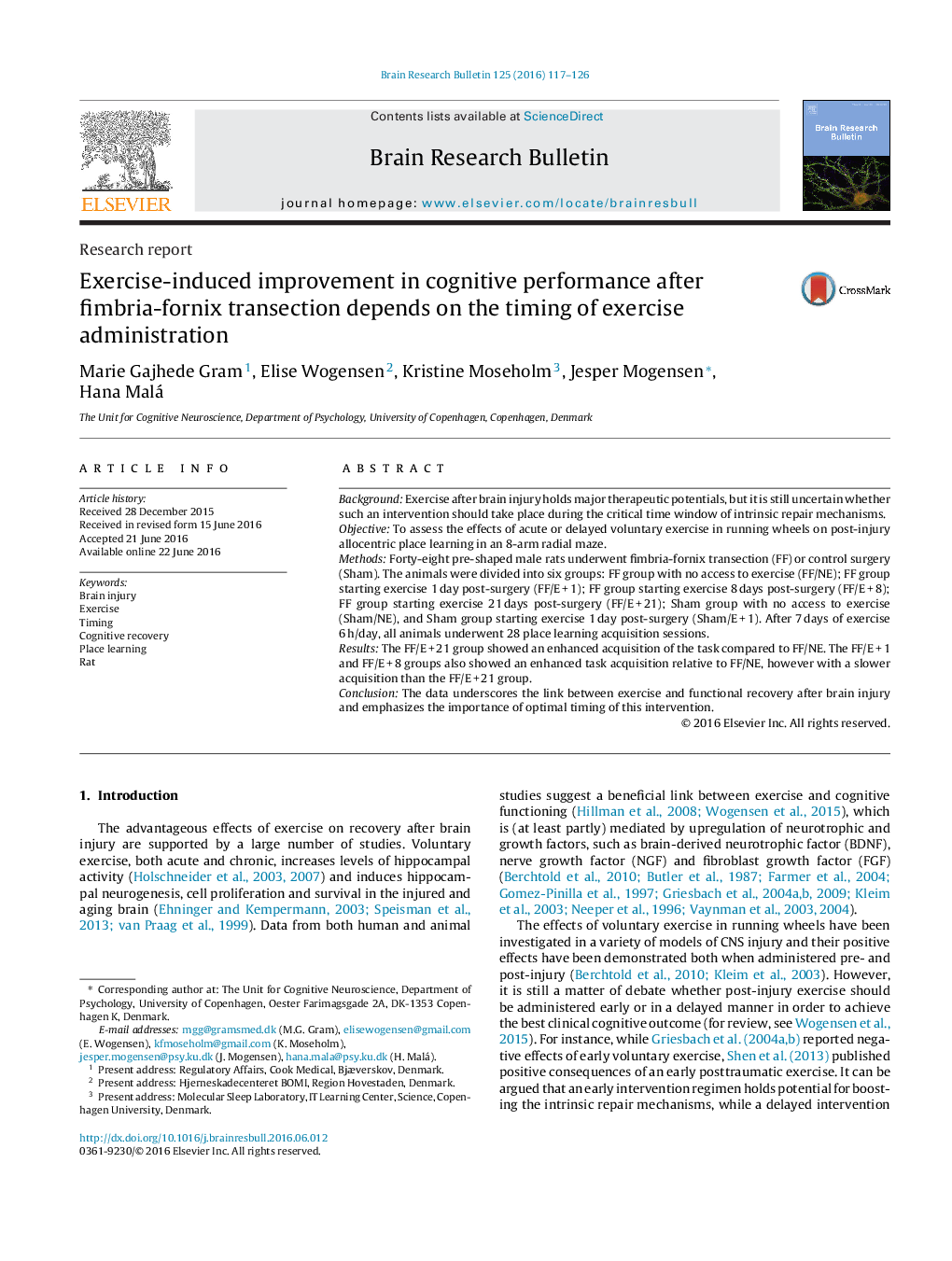| Article ID | Journal | Published Year | Pages | File Type |
|---|---|---|---|---|
| 6261526 | Brain Research Bulletin | 2016 | 10 Pages |
â¢Improved post-injury place learning after a 7 day running regimen.â¢Varying effects on performance with exercise initiation 1, 8 or 21 days post-injury.â¢Delayed voluntary exercise resulted in support of posttraumatic cognitive recovery.â¢Less efficient effect on functional recovery with early exercise initiation.â¢Timing of voluntary exercise appears to determine posttraumatic functional outcome.
BackgroundExercise after brain injury holds major therapeutic potentials, but it is still uncertain whether such an intervention should take place during the critical time window of intrinsic repair mechanisms.ObjectiveTo assess the effects of acute or delayed voluntary exercise in running wheels on post-injury allocentric place learning in an 8-arm radial maze.MethodsForty-eight pre-shaped male rats underwent fimbria-fornix transection (FF) or control surgery (Sham). The animals were divided into six groups: FF group with no access to exercise (FF/NE); FF group starting exercise 1Â day post-surgery (FF/EÂ +Â 1); FF group starting exercise 8Â days post-surgery (FF/EÂ +Â 8); FF group starting exercise 21Â days post-surgery (FF/EÂ +Â 21); Sham group with no access to exercise (Sham/NE), and Sham group starting exercise 1Â day post-surgery (Sham/EÂ +Â 1). After 7Â days of exercise 6Â h/day, all animals underwent 28 place learning acquisition sessions.ResultsThe FF/EÂ +Â 21 group showed an enhanced acquisition of the task compared to FF/NE. The FF/EÂ +Â 1 and FF/EÂ +Â 8 groups also showed an enhanced task acquisition relative to FF/NE, however with a slower acquisition than the FF/EÂ +Â 21 group.ConclusionThe data underscores the link between exercise and functional recovery after brain injury and emphasizes the importance of optimal timing of this intervention.
